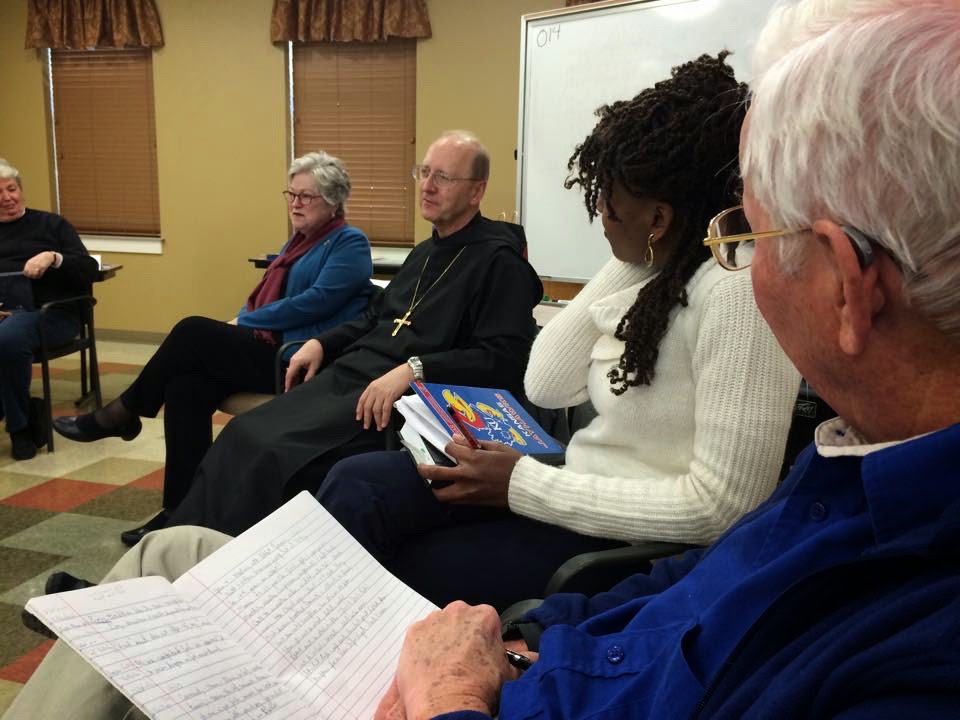Our week at the Abbey “filled the hungry with
good things.” We return refreshed, with quieter hearts and a spirit of
peace. We also return with new resolve
to bring balance to our lives outside the cloister. The combination of prayer, work, and holy
leisure, as prescribed by the Rule of St.
Benedict, is all about human flourishing.
People attend the Benedictine Spirituality
course for a lot of reasons. It is a
relatively painless way to earn three hours; it provides opportunity for
retreat; it offers spiritual community; and, it introduces the learner to a
time-honored tradition for conversion of all ways of life. I am always grateful for this extended time
with fellow learners in prayer, around the tables, with opportunity to engage
hospitable monks who offer transparent windows into their lives and faithful
practice.
Over the years of teaching this class at
Conception Abbey, I have noticed another process unfolding in the lives of
those who make this pilgrimage. There is
a palpable hunger for the sacramental.
Learners from Central are not eager to convert to Roman Catholicism;
however, they long for more significance in Eucharist, words of blessing and
absolution, and a deeper sense of sacred space and time.
We recognize that the Protestant Reformation
gave attention to key issues such as the role of faith, the normative significance
of Scripture, and the priesthood of all believers. Yet, we perceive that the
rending of the church caused loss on both sides. Protestants lost much of the interlocking
sacramental system; Catholics lost the possibility of a more inclusive way of
thinking about leadership, vocation, and assurance of salvation by faith alone.
When asked to reflect on the experience at the
Abbey in one word, one learner simply said “thirstier.” Another said “sacramental.” They were speaking about their yearning to
appropriate weightier, more sacramentally grounded “means of grace” in their
own tradition.
The Epistle reading for this coming Sunday, the
second Sunday after the Epiphany, includes this statement: “ . . . whoever is
joined to Christ becomes one spirit with Christ” (1 Corinthians 6:17). This suggests to me that the goal of a more
sacramental focus is for union with Christ in an organic way. One no longer thinks of his or her identity
separate from Christ—or from Christ’s Body, held together in the power of the
Spirit.
Once again, we were beckoned to new insights by
another branch of the church. By walking
back through our tributary toward the river of origin, we identified our thirst
and recognized more about the Source.
Molly T. Marshall
Central prepares women and men for seeking God, shaping church, and
serving humanity.





No comments:
Post a Comment